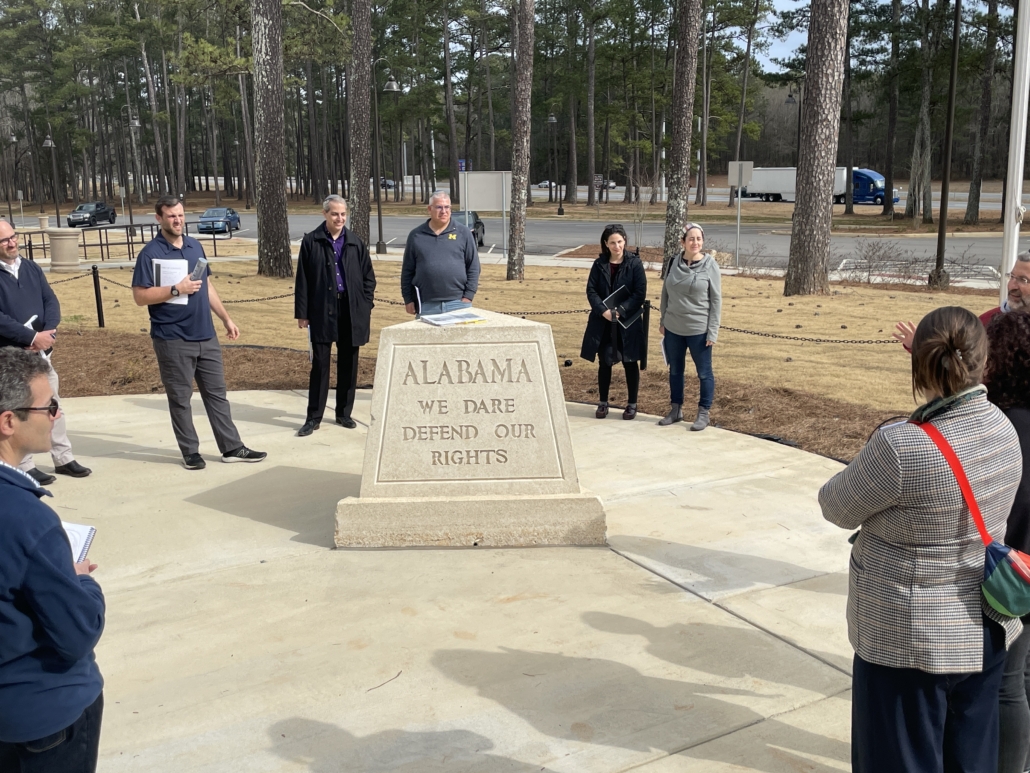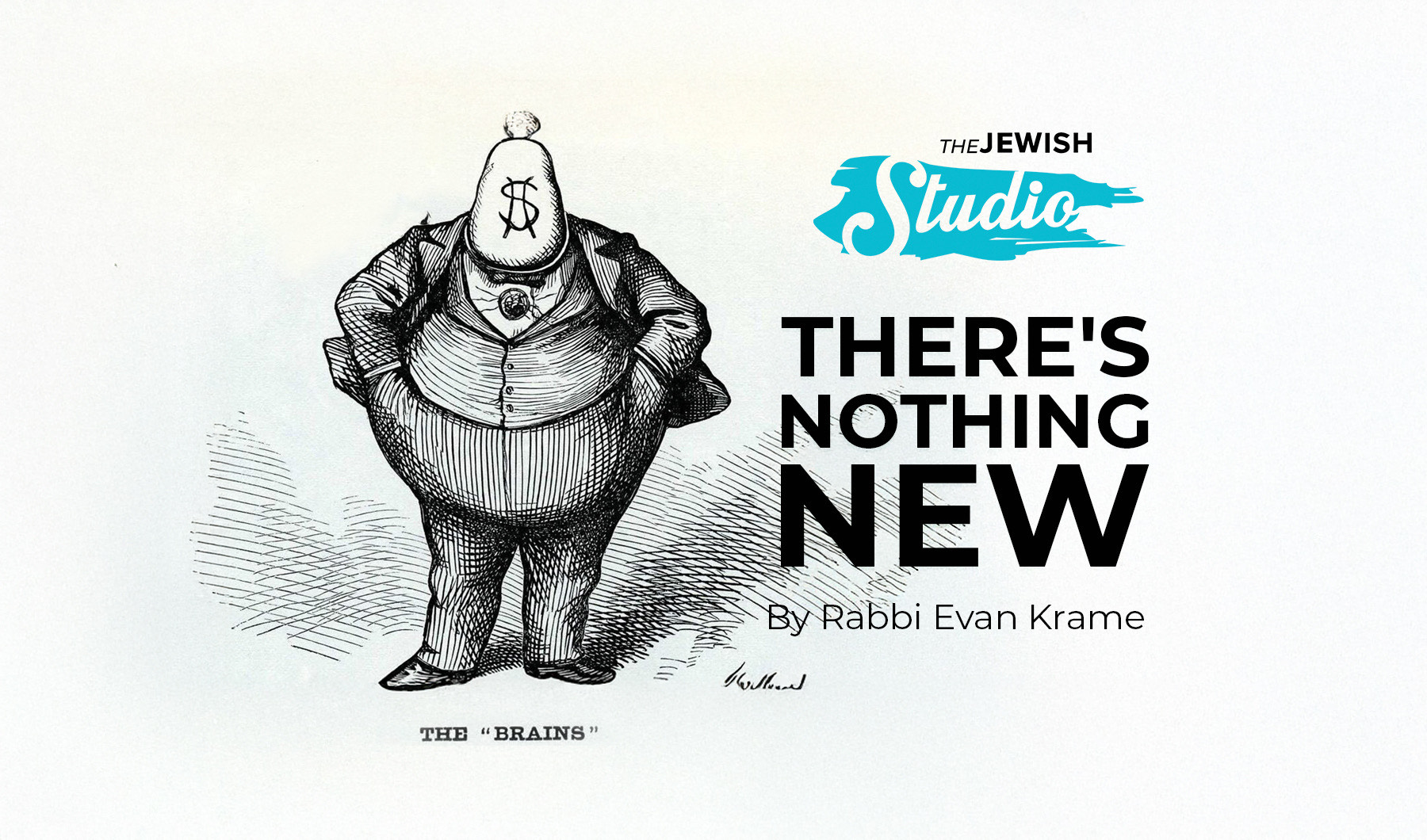Crossing from Georgia into Alabama on I-75, our group of rabbis entered the first rest stop. A large carved stone reads: “Alabama We Dare Defend Our Rights.” Alabaman’s defense of rights? Whose rights are these Alabamans daring to defend? Is it the rights of its African American citizens? Or the state’s right to make laws that discriminate as each state sees fit? The statement as displayed dares us to explore what rights are important to Alabama. Withhold judgment until you learn more.
For example, the issue of mass incarceration is on my mind. Alabama’s prisons are filled with African American inmates. Blacks are incarcerated at twice the rate of whites. My inclination is to condemn criminals for their behavior. But the statistics in Alabama make me question my judgment. Are all the people incarcerated contemptible? Such judgment fails to consider the circumstances that led to incarceration or the humanity of each imprisoned person. While Blacks are 25% of the state population, Black prisoners represent 50% of the total prison population. Is that attributable to an unfair legal system, perhaps? Bryan Stevenson of the Equal Justice Initiative says that “no one deserves to be judged solely by their worst moments and greatest failings.” My presumptions about the character of Alabama prisoners must be challenged.
Does the same approach to judging people by their greatest failings apply to others in Alabama? This question will come up when we meet Jewish Alabamans who refrain from the struggle for civil rights. Will I judge them solely by their moral failings? Spoiler alert, we met lovely Jews in Alabama who were apathetic or unmoved by the Civil Rights movement.
Perhaps the key to a civil rights mission to Alabama is to set judgment aside. Like Jello, there’s always room for judgment. But to gain understanding and wisdom, judgment should come at the conclusion of fact-finding, and deep listening to the concerns and perceptions of each person. My intention is to listen before I offer judgment.
We drive out of the rest stop and pass a ball field where a group is playing soccer. How similar this scene is to one I might see in Montgomery County, Maryland. I see children enjoying life despite the mess their ancestors have made of this world. They deserve a world where we are curious and concerned before we offer judgment.
Rabbi Evan Krame





